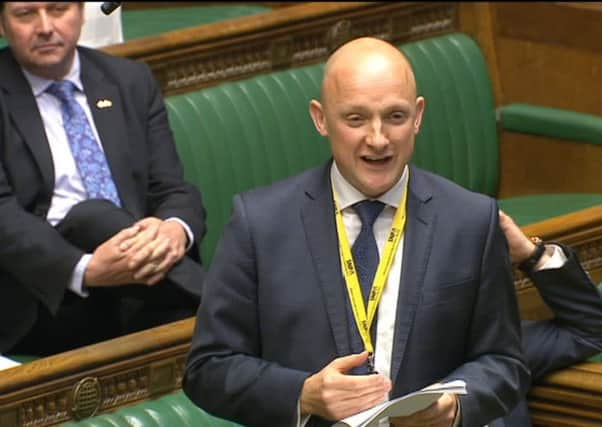Kerr wants Borders to be connected


The member for Berwickshire, Roxburgh and Selkirk and the SNP’s digital spokesperson at Westminster, called for more ambition to tackle the challenge of rural connectivity.
While leading his party’s contribution during last Tuesday’s debate on the second reading of the government’s Digital Economy Bill in the House of Commons, Mr Kerr said: “We want to see more ambition from the government on meeting the challenges of creating high quality rural coverage. The UK may have one of the most competitive digital communications markets out there, but for the final five per cent who struggle to access networks, this is irrelevant.
Advertisement
Hide AdAdvertisement
Hide Ad“Rural communities already have to deal with numerous challenges such as poorer access to transport infrastructure, so we must ensure that they are not excluded from the digital superhighways of the future.”
The Digital Economy Bill will include measures to institute a Universal Service Obligation for broadband providers – which will see a regulatory regime put in place similar to that which governs the utilities sector. Mr Kerr welcomed this development, while stressing that it had to be implemented in a way that addresses the concerns of consumers in remote areas.
He added: “It’s welcome that this Bill takes steps to positon broadband as the ‘fifth utility’, but with that new status comes a greater responsibility upon providers and regulators to provide equality of access wherever that’s feasible.
“As we talk increasingly of forms of ‘digital citizenship’ it is absolutely vital that large swathes of the country do not become second-class citizens by default or oversight.”
Advertisement
Hide AdAdvertisement
Hide AdMr Kerr contrasted the Conservative government’s proposed Universal Service Obligation of download speeds of 10 megabits per second, with the Scottish Government’s commitment to deliver superfast speeds (30 megabits per second) by 2021.